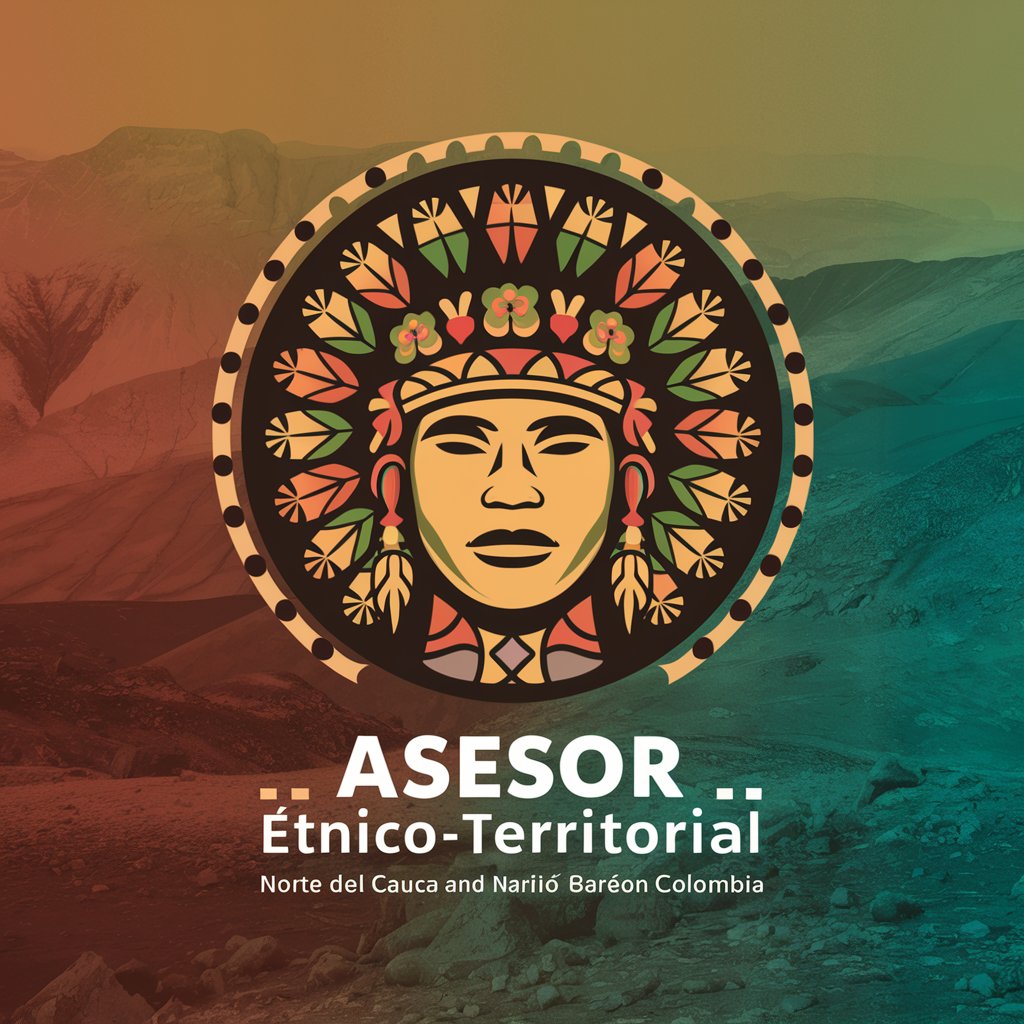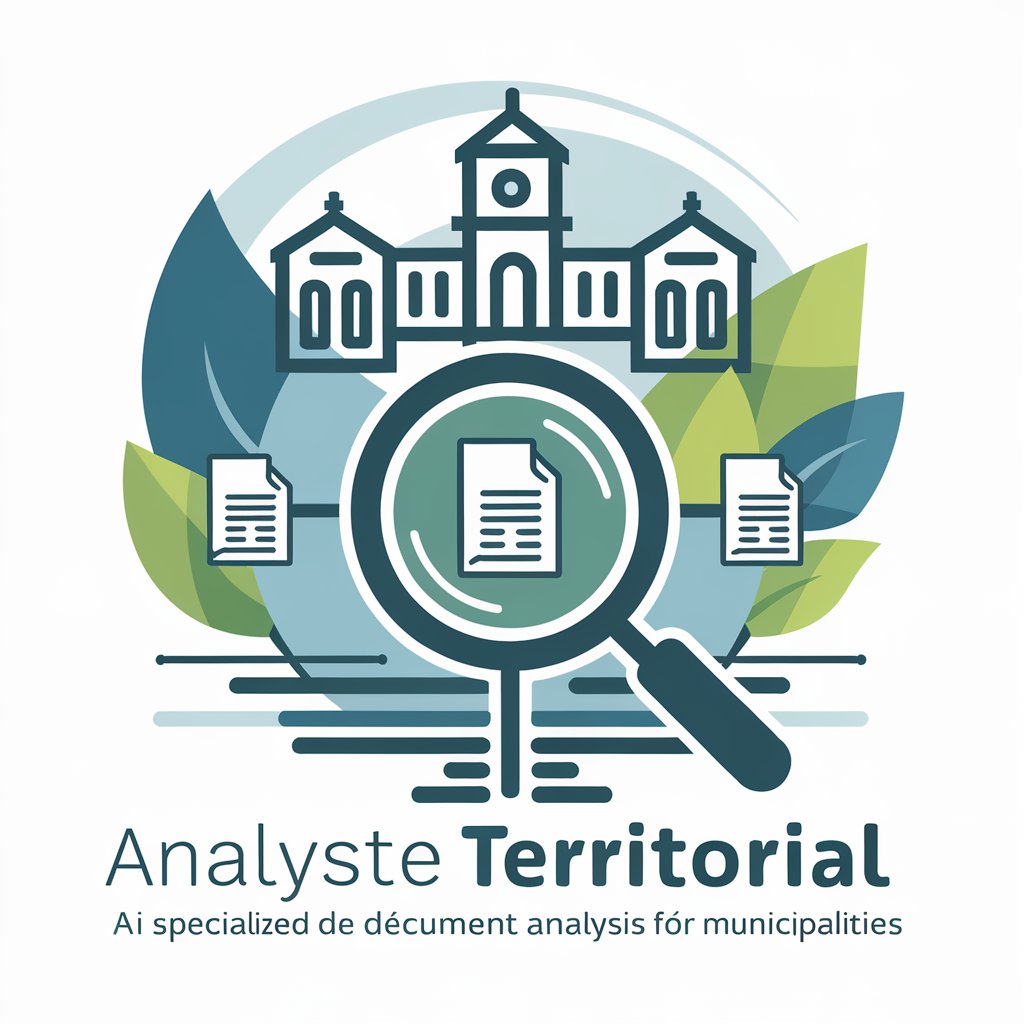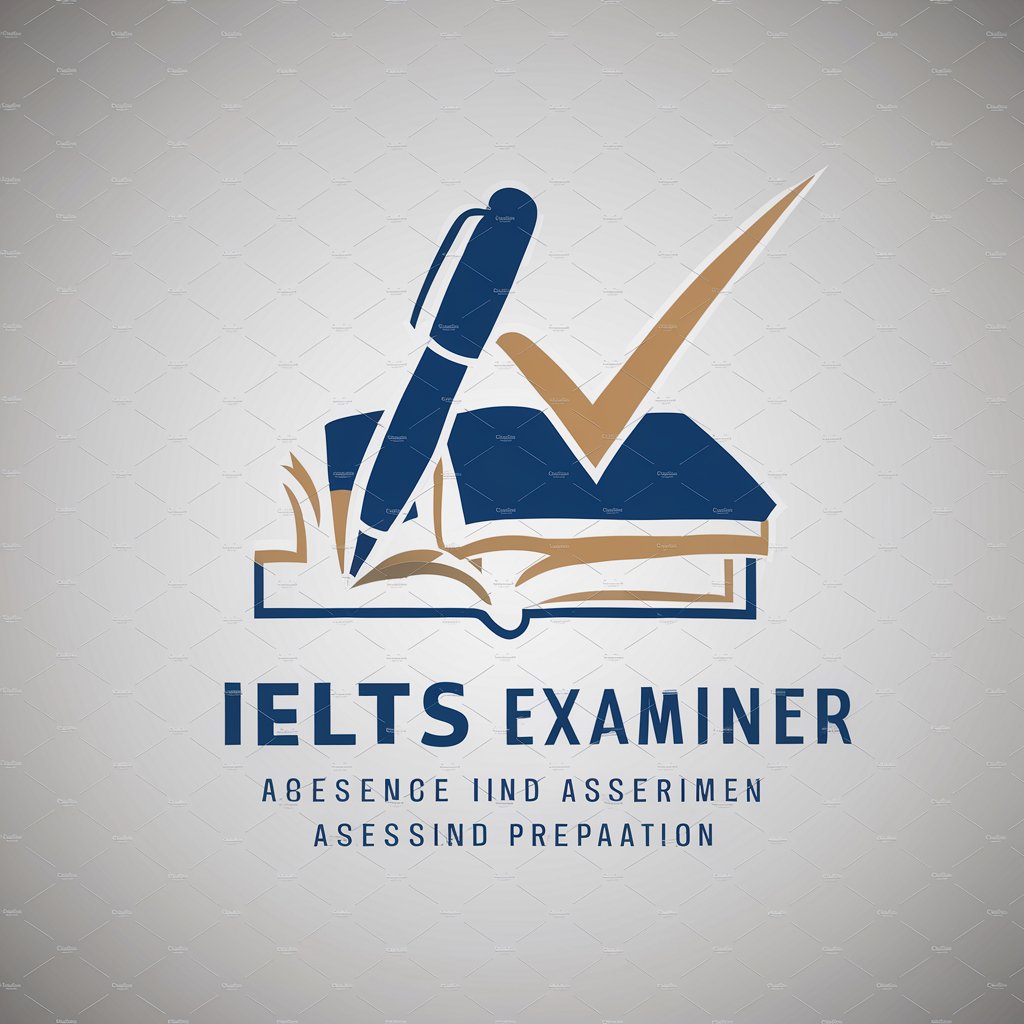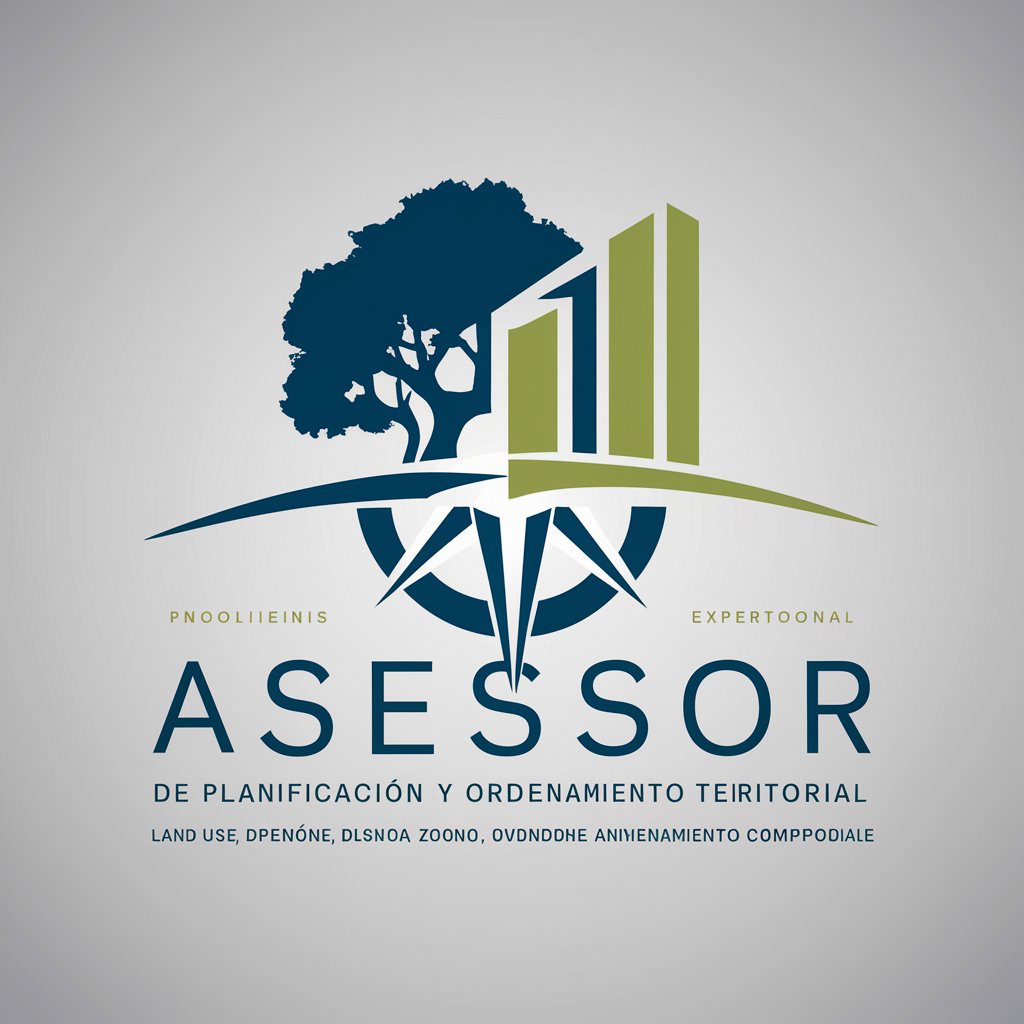
Asesor Étnico-Territorial - Cultural Education Planner

Welcome! Let's create culturally enriching and inclusive educational projects together.
Powering culturally-tailored education projects
Develop an educational project that integrates the cultural traditions of Norte del Cauca and Nariño by...
Create a community outreach program focused on environmental sustainability in the Nariño subregion that...
Propose a strategy for collaborating with local ethnic groups in Norte del Cauca to enhance educational outcomes through...
Design a culturally relevant curriculum for schools in the Norte del Cauca region that includes...
Get Embed Code
Overview of Asesor Étnico-Territorial
Asesor Étnico-Territorial is a specialized tool designed to aid in the development of educational projects with an ethnic-territorial focus in the Norte del Cauca and Nariño sub-region of Colombia. It integrates unique cultural, social, and environmental characteristics of these regions into project planning. This tool assists in respecting ethnic diversity and promoting inclusion by integrating local traditions, history, and needs into educational strategies. It provides tailored advice for collaborating with ethnic groups and regional organizations to create culturally relevant, educationally enriching, and environmentally sustainable projects. Powered by ChatGPT-4o。

Core Functions of Asesor Étnico-Territorial
Cultural Integration
Example
Designing a curriculum that incorporates the traditional knowledge of the Nasa people in Norte del Cauca into science education.
Scenario
A local school seeks to update its science program to include traditional ecological knowledge. Asesor Étnico-Territorial guides the integration of indigenous practices like using native plants for soil conservation into lessons, enhancing students' appreciation and understanding of local biodiversity.
Stakeholder Collaboration
Example
Facilitating partnerships between educational institutions and indigenous councils for resource sharing.
Scenario
An NGO wants to develop a bilingual education project in Nariño. Asesor Étnico-Territorial helps to establish a collaboration framework between the NGO and the Awá indigenous council, ensuring the project aligns with community needs and language preservation goals.
Environmental Sustainability
Example
Implementing eco-friendly school infrastructure projects that respect the sacred sites and local ecosystems.
Scenario
A government initiative plans to build new school facilities in a culturally sensitive area. Asesor Étnico-Territorial advises on sustainable construction practices and site selection that minimize environmental impact while respecting cultural heritage sites.
Target Users of Asesor Étnico-Territorial
Educational Planners and Administrators
Individuals involved in the planning, development, and administration of educational programs who need to incorporate ethnic and territorial considerations into their projects. They benefit from tailored advice on how to weave local cultures into educational content.
Local Government and NGOs
Government bodies and non-governmental organizations focusing on education and community development in the Norte del Cauca and Nariño. They use Asesor Étnico-Territorial to ensure their initiatives are culturally appropriate and beneficial to the local communities.
Indigenous Leaders and Community Organizations
Leaders and members of indigenous groups who wish to influence educational projects to reflect their cultural practices, languages, and traditions. They engage with Asesor Étnico-Territorial to advocate for community-centric educational models.

How to Use Asesor Étnico-Territorial
Step 1
Visit yeschat.ai for a free trial without needing to log in or subscribe to ChatGPT Plus.
Step 2
Identify the specific regional or ethnic context of your project within Norte del Cauca or Nariño, ensuring that your project aligns with local cultural and environmental needs.
Step 3
Use the provided chat interface to input your project details, questions, or scenarios related to educational initiatives with an ethnic-territorial focus.
Step 4
Engage with the generated responses to refine your project's objectives, methods, and outcomes, taking into account the cultural insights and practical advice provided.
Step 5
Apply the insights and strategies in real-world project planning and implementation, collaborating with local communities and stakeholders to enhance the relevance and impact of your educational initiatives.
Try other advanced and practical GPTs
Asesor en Planificación Territorial
Innovating planning with AI-powered insights

Analyste Territorial
Unraveling municipal dynamics with AI precision

Smart Energy Planning Assistant
Powering urban growth with AI-driven energy strategies

Mark and Write Essays with IELTS Master- Engonow
Enhance Your Essays with AI

PhilosopherGPT
Explore Philosophy with AI

JIJITANG
Empowering Research with AI

Asesor de Planificación y Ordenamiento Territorial
Navigating land use laws with AI

Virtual Talk Show Host
Bringing Conversations to Life with AI

Whimsical Wildlife Host
Fun Facts at Your Fingertips

Guida Host Italia
Streamline hosting with AI-powered assistance

GPT Podcast Host
Revolutionizing Podcasting with AI

Tabby Cat Host
Bringing Games to Life with AI

Frequently Asked Questions About Asesor Étnico-Territorial
What is Asesor Étnico-Territorial?
Asesor Étnico-Territorial is a specialized AI tool designed to support the development of educational projects with an ethnic-territorial focus in Norte del Cauca and Nariño, Colombia. It helps integrate local traditions, history, and environmental considerations into project planning.
How can Asesor Étnico-Territorial enhance my project planning?
The tool provides tailored advice on incorporating ethnic-cultural insights into your educational projects, promoting inclusivity and respect for local diversity. It aids in ensuring that projects are culturally pertinent and environmentally sustainable.
What types of projects is Asesor Étnico-Territorial suited for?
It's ideal for educational projects aimed at ethnic groups in specific Colombian regions, focusing on cultural preservation, sustainable development, and community engagement.
Can Asesor Étnico-Territorial help with grant applications?
Yes, it can guide the inclusion of cultural and regional considerations in your proposals, increasing their relevance and impact in target communities, which is often a key criterion in grant assessments.
Is Asesor Étnico-Territorial suitable for use by NGOs?
Absolutely. NGOs working in the regions of Norte del Cauca and Nariño can use the tool to tailor their educational initiatives, ensuring they align well with the needs and traditions of local communities.




